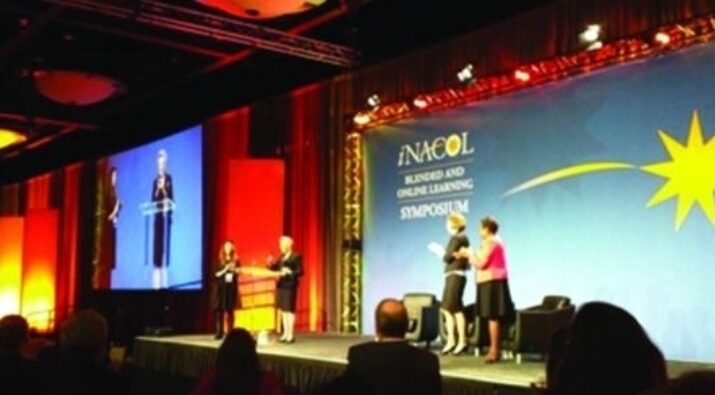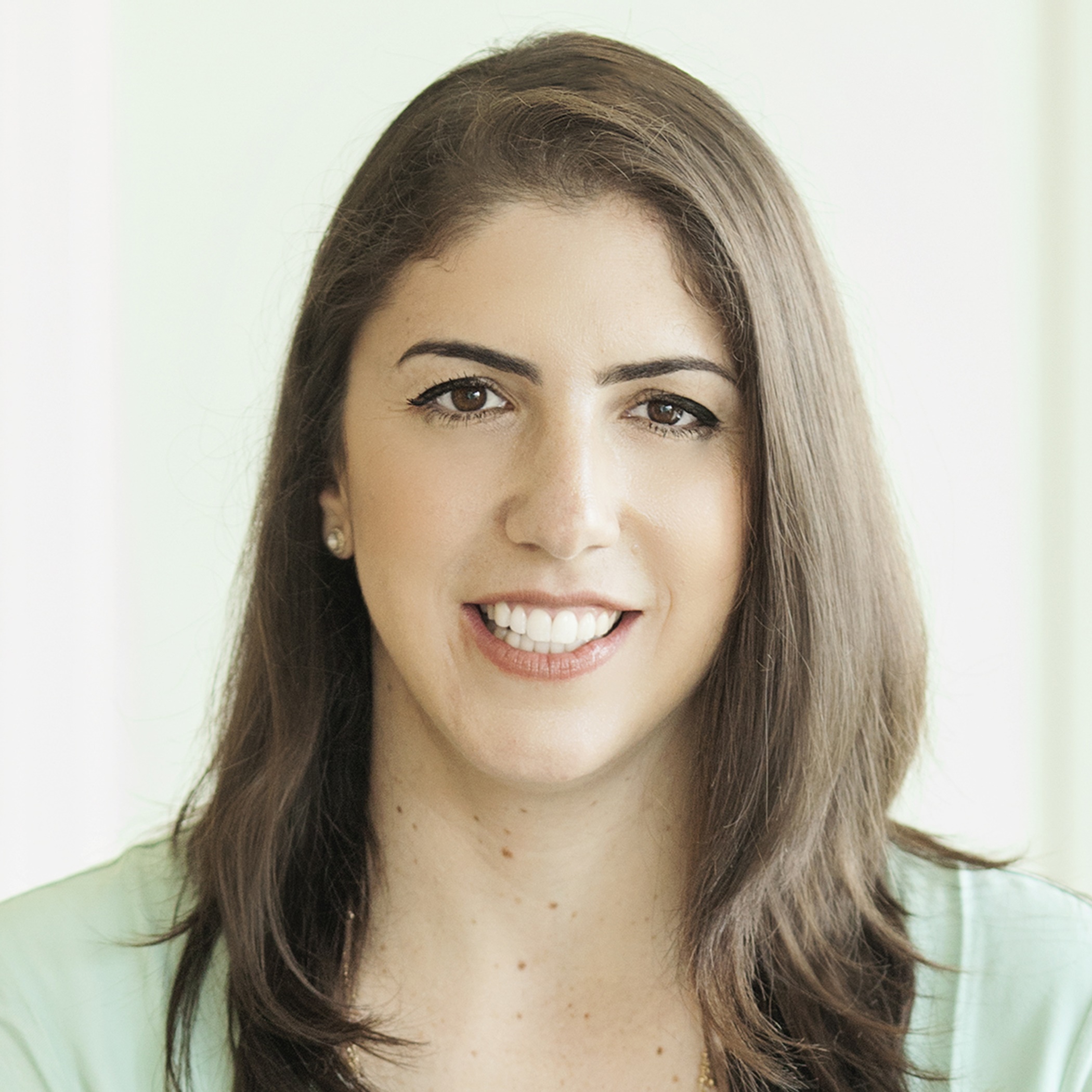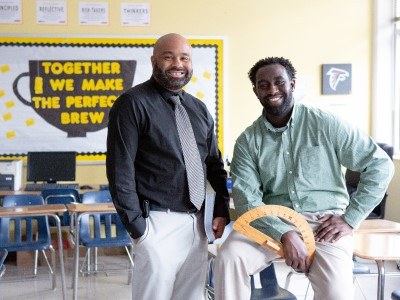Building Community
Inspiration and the Right People @ iNACOL 2015
Topics

When educators design and create new schools, and live next gen learning themselves, they take the lead in growing next gen learning across the nation. Other educators don’t simply follow and adopt; next gen learning depends on personal and community agency—the will to own the change, fueled by the desire to learn from and with others. Networks and policy play important roles in enabling grassroots approaches to change.
Practitioner's Guide to Next Gen Learning
"Transforming education cannot be done to people, or for people, but must be done by people."
-Gisele Huff
As our colleague Adam Rubin at 2Revolutions tweeted out, iNACOL 2015 has been all about “inspiration and the right people.” I couldn’t agree more. This year’s annual event was the best ever for NGLC. We welcomed nearly 100 of our national and regional K-12 breakthrough model grantees to the event and we were proud to see NGLC schools everywhere—presenting sessions, hosting workshops, and, well, “networking” poolside in the warm, sunny weather. We also were pleased to hear the good news from RAND Education’s study of NGLC schools showing continuing positive effects of schools employing more personalized learning methods.

Education Elements’ product booth involved a hands-on activity allowing participants to chart their own personalized learning pathway. View on Twitter
Inspiration...
This year’s symposium felt very connected to the real world of students and educators. Many sessions were interactive and required participants to engage in problem-based learning. Although we were physically situated in a very “grown-up” hotel, student voice was everywhere including on the main stage, in the workshops, and in real time via FaceTime and Skype. My colleague Stefanie Blouin attended a session on the best ed tech products led by a thirteen year-old student!
Only a few years ago, I had trouble finding a conference that was a good fit for me. I remember feeling like a fish out-of-water at many of them because the field was, in my opinion, overly focused on technology as the end goal, rather than technology as a means to the end. But this year, I was swimming in my kind of pond at the iNACOL Symposium. The entire iNACOL community seemed uniformly committed to redesigning learning and student outcomes.
...And the Right People
NGLC Regional Funds partners featured quite heavily in the conference agenda; here is a run-down of key sessions and workshops they offered:
- LEAP Innovations’ Amy Huang and colleagues presented a session entitled: “Sustaining an Innovative Education Ecosystem: A Chicago Story.”
- CityBridge Foundation’s Margaret Angell hosted a workshop entitled: “A Step-By-Step Guide to Communications Planning for Blended Learning: Key Messages, Tips, and Tactics for Knowing What to Say and When to Say It.”
- New England Secondary Schools Consortium colleagues Mark Kostin and Angela Hardy presented two workshops including:
- “Make Sure it Survives: Designing High-Impact Forward-Thinking Policies for Sustaining Personalized Learning “
- “Common ends, Uncommon Means: The Key to Ensuring Equity and Rigor in Personalized Learning”
And NGLC breakthrough model grantees were everywhere! I’m reluctant to list ALL of the grantees presenting because I’m sure I’ll miss someone. Suffice it to say, word is out, and NGLC grantees are among the most coveted speakers and presenters around!
A Personalized Learning Episode of Car Talk

Back by popular demand, NGLC’s Andy Calkins, Stef Blouin, and Tony Siddall led the NGLC Car Talk session to a packed audience! This year, the panel discussion featured Click (Jeremy Chiappetta from Blackstone Valley Prep), Clack (Scott Fraunheim from CICS West Belden), and their sister Clock (Melissa Zaikos from Intrinsic Public Schools). In this lively and engaging session, participants asked their most pressing questions about personalized learning. It was an opportunity to learn from leaders at the front lines of school transformation.
In true Car Talk fashion, the questions ranged from nuts and bolts issues—How do you build continuing support from teachers?—to questions that got right to the human condition of a next gen school leader, like What scares you most?
Click’s answer to the latter question resonated with the crowd: “What if we’re wrong?” It was good to hear someone say outloud what many of have asked ourselves privately. To paraphrase Click, aka Jeremy, there are a lot of very smart people who believe that content is king and that a highly structured environment works best. What if they’re right? When the moderator Dewey—Andy Calkins of the law firm Dewey, Cheetham & Howe—asked how many people in the room believe that student-centered, personalized learning is the way to go, virtually every hand shot up. Having an open, honest dialogue about the clear risks involved in school innovation helped the audience understand what NGLC is all about.
@NextGenLC Car Talk session: What worries you most. Melissa Zaikos answers...#inacol15 #NGLCchat @IntrinsicSchool pic.twitter.com/hPh5joVgDv
— Stefanie Blouin (@StefanieBlouin) November 10, 2015
Testing and Refining Next Generation Learning
I led a panel entitled “NGLC @ 3 Years: Testing and Refining the Hypotheses Behind Our Work.” Adam Carter from Summit Public Schools, Erin Mote from Brooklyn Lab School, Sara Cotner from Montessori for All, and Margaret Angell from CityBridge Foundation discussed how their work is premised on a diverse set of hypotheses on how to redesign learning for better student outcomes. We then explored what data we have to test our hypotheses and what data we wished we had. Panelists agreed: given how complex and multivariate their models are, they wish they had a different set of tools and measures to assess that complexity.
Here are a few notable quotes from the panel:
Erin Mote: ”If we are not brave and willing to say ‘look at these other forms of growth (aside from ELA/math)’ then all that will happen is that the models that get held up will be the ones that get students to level four on a standardized test. If we don't develop these frameworks, we'll always be stuck with our math scores.”
Sara Cotner: “You have to measure what you treasure. But we have to be careful about it. It can easily turn into ‘doing more of what the teacher says you have to do.’ If teachers are carrying a clipboard and watching whether their students are exhibiting grit, that's not going to do it.”
The Inspiration Continues... Because of the Right People
NGLC’s Andy Calkins had this to say about iNACOL 2015:
“I went to my first iNACOL conference five years ago. There were something like 600 people there and no mention of ‘blended’ or ‘personalized’ or ‘next gen’ or ‘student centered’ or ‘deeper’ learning. There were no NGLC grantees there. This year's conference had 3,200 attendees. NGLC grantees were all over the conference agenda and our programs, including the new Assessment for Learning Project, got several references from the podium in plenary sessions for all of the conference's participants. There was a general sense of an emerging field this year: personalized, student-centered, competency-based, blended. Going to iNACOL is like time-lapse photography of a field coming into its own.”
This visible change in the field is in part because of the work NGLC grantees are doing day in and day out in their schools. I thank them for their efforts to make this emerging field a reality and building that better future for our kids. They are the right people and they inspire me.





